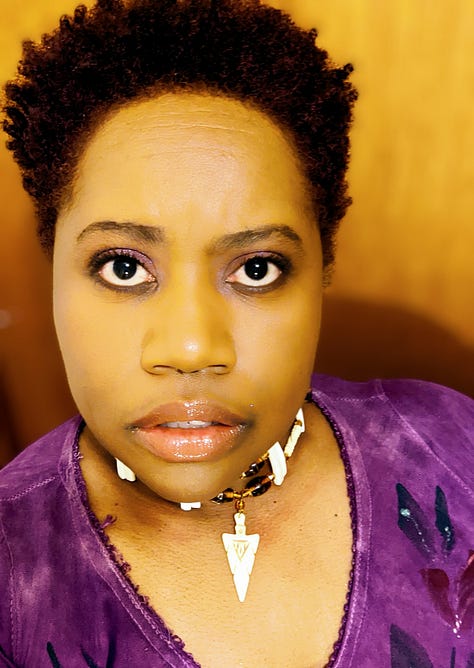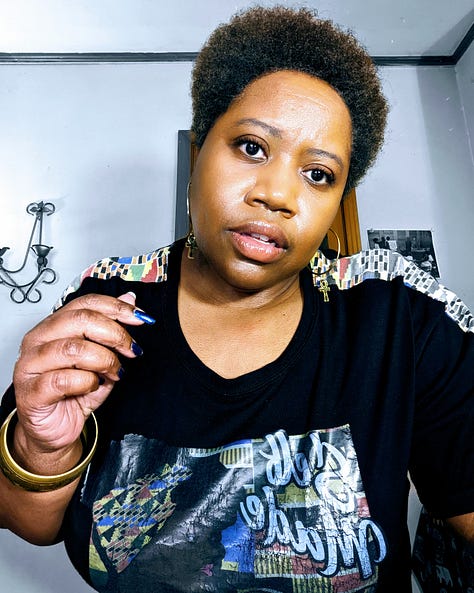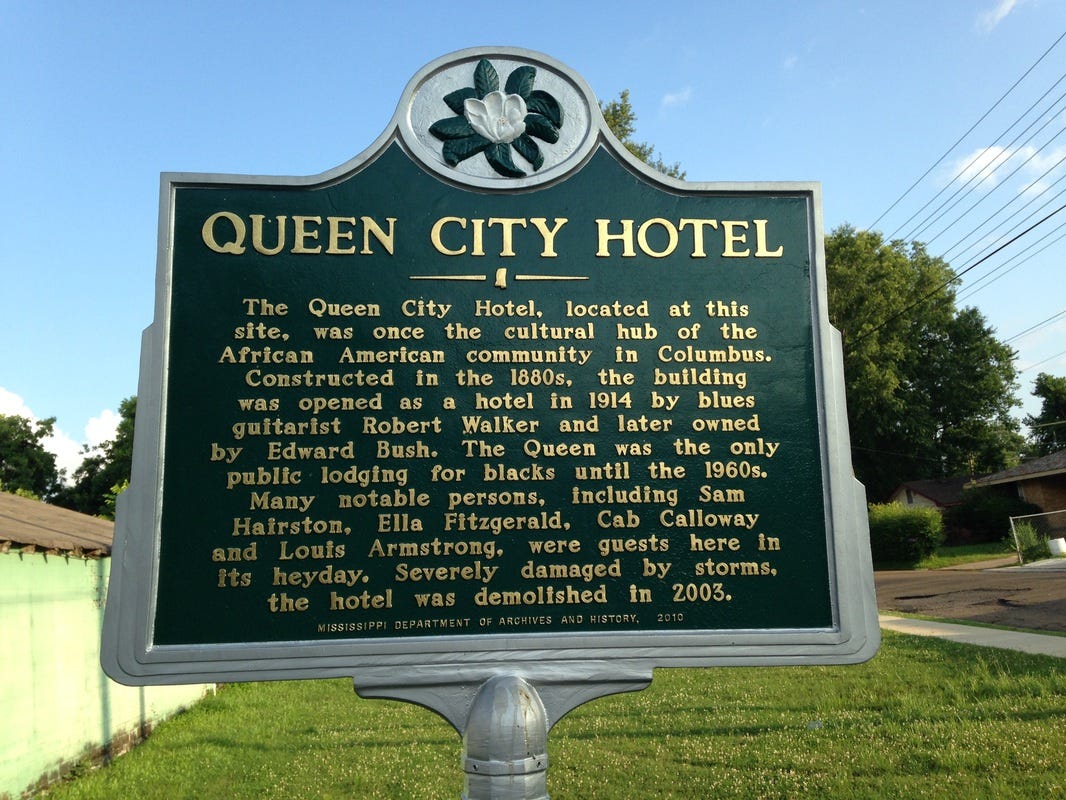Clock That: How I Became Black
I don't control my writing muse, but rather I am persuaded by it and I heed its direction. Hence, this piece... Clock That will be a new series here on LLW.



I was born and raised in Mississippi. I think that fact says everything it needs to say about me as an African American woman, but let’s just make it plain for many who may be reading this and unaware. Mississippi has a wretched history when it comes to Black people. From chattel slavery to Jim Crow to the turbulent Civil Rights movement to the present day, African Americans are still navigating the generational realities perpetuated by these historic encounters. By trying to reconcile those legacies of pain and subjugation through a recall of the stories and their loved ones, Black natives of the state are continually mustering up the sheer will to live fully in that land and I’m proud to say that many are doing quite well.
On the other hand, Mississippi has offered the world an exceptional class of African Americans who have been major forces with their contributions to American culture and society; from Ida B. Wells, Morgan Freeman, James Earl Jones, Leontyne Price, Oprah Winfrey, BB King, Anjuanue Ellis Taylor, Jerry Rice, Walter Payton, and the list goes on. Of course, I can add myself but then that’ll just be braggadocious.
Being educated in the Sip meant I was a result of the poor ratings the state received for their educational system. However, I had teachers, both white and Black, that taught us from their hearts. Mr. Locke, an eccentric, hilarious white man, was my senior English teacher who introduced me to French literature by recommending that I do my term paper on the novel, Madame Bovary by Gustav Flaubert. Given the plot of the book, I wonder if Mr. Locke would have been in today’s headlines for allowing a seventeen year old to write her term paper on such content. Of course, the book probably would be banned as well.
My Black teachers were an assortment of beautiful elders who were well-respected because of their involvement in the education of the neighborhood children. My Algebra teacher, Mr. Lemon was a quirky little man whose glasses sat on his nose and it was rumored that there was more than coffee in the mug he carried around with him. But, when he taught us, his expectations were high and his grading was even more rigid. Mr. Lemon, along with Mrs. Walker, my high school Science teacher, taught my mother and my brother.

Perhaps my most memorable teacher was Mrs. Beale. She taught me in the sixth grade. She was mean, funny, and left a lasting impression on me; so much so, that I realized a few years ago that I inadvertently patterned my teaching style after Mrs. Beale. I consider this a treasured part of my educational experience because I learned within a tightly-knit community. Those teachers knew my family so they made sure I was prepared for a society that would be dismissive of my presence all because I am melanated and a woman.
I definitely learned despite what the data reflected and upon graduation, I entered college, prayed up and ready to handle the academic challenges. While I was taught the state requirements for reading, writing, and ‘rithmetic, my cultural education was lacking. Other than Black History Month and the common reminder during US History classes that my People were formerly enslaved and Dr. Martin Luther King, Jr., gave a speech about a dream which supposedly was enough to grant us all the civil liberties we were fighting for. It wasn’t my teachers’ fault, but rather the lack of accessible materials and policies that did not allow for anything that countered the curriculum – pretty much like it is now. So, how did I learn about my history and culture?
I went to the library. I read books; every book that I could find about Black folks. I would spend hours on end in the two-story library in my hometown, sitting at a table with a notebook, pen, and a stack of books, just a-learning. My parents bought me books about Black people and Black things so that started my personal library. I listened to Hip Hop that brought my awareness to a certain kind of consciousness regarding the Black Experience. The lyrics and visuals crafted a research path for me that I’m still traveling, although I’m quite astute in my studies at this point.
“ 'Cause I'm Black and I'm proud
I'm ready and hyped plus I'm amped
Most of my heroes don't appear on no stamps…” – Chuck D, Fight the Power
Song: “Why is That” - KRS-One
Once I made it to college, I went into overdrive because I had access to a more robust library with digitized and hard copy journals, microfiche, and countless shelves of books. Through both fiction and nonfiction works, more was revealed about me and connected me to the ancestors of the past, the global community of the present, and the blank canvas of a Black future. Adulthood meant that I could make a hefty investment in my personal library which is currently teetering at about 400 books and counting. Curiosity, wonder, and initiative fueled my passion for better understanding and interpreting this reality of living Black in such a society as this one. But in everything I studied, it always led me back to the source – the Motherland.
Now, I’ve been immersing myself in the cosmologies, philosophies and spiritualities of Africa and I’m constantly marveling at how much wasn’t lost during the Maafa but at times, I’m overwhelmed by how much must be revised and restored to meet our present day needs. This journey has taught me, so far, that there is a breadth and depth to this living Black; that there is a diaspora that I am connected to and in relationship with. My reality is the reality of a Black woman in Brazil. The reality of a Black woman in London is my reality. Our realities are shaped by the realities of women in Ghana, South Africa, Kenya, and so on. There are similarities and differences indeed, but these realities are essentially aligned because of the centralization of Africa within our ancestry and histories. And yet, there is still much we can learn from each other’s individual experiences; weaving a beautiful tapestry of nuances. Now, how dope is that? Another thing I’ve learned is that none of this work is about cultivating a hatred for anyone, but rather this is an act of radical self-love.
While living Black and coming from Mississippi could be a confining space where it was hard to bloom because of the tightness of unresolved tensions, the freeing of me came by way of seeing myself as part of a whole. Don’t get it twisted though. I am still Mississippi because in my quest for Black knowledge and wisdom, I have come to love my Mississippi legacy as well. Instead of darkness, I see the light of love and resilience, a safekeeping of folk traditions and safeguarding of my personage and heart.
Now, just think, if I had access to materials that allowed me to construct a healthy cultural identity that empowers me to move through this world, unfettered and unapologetically, what will happen to the millions of Black children in this country if there are restrictions put in place for them to not do the same? What will become of them? Clock that.








Such wonderful writing, so much for me to ponder. Thank you.
Super excited to read this!